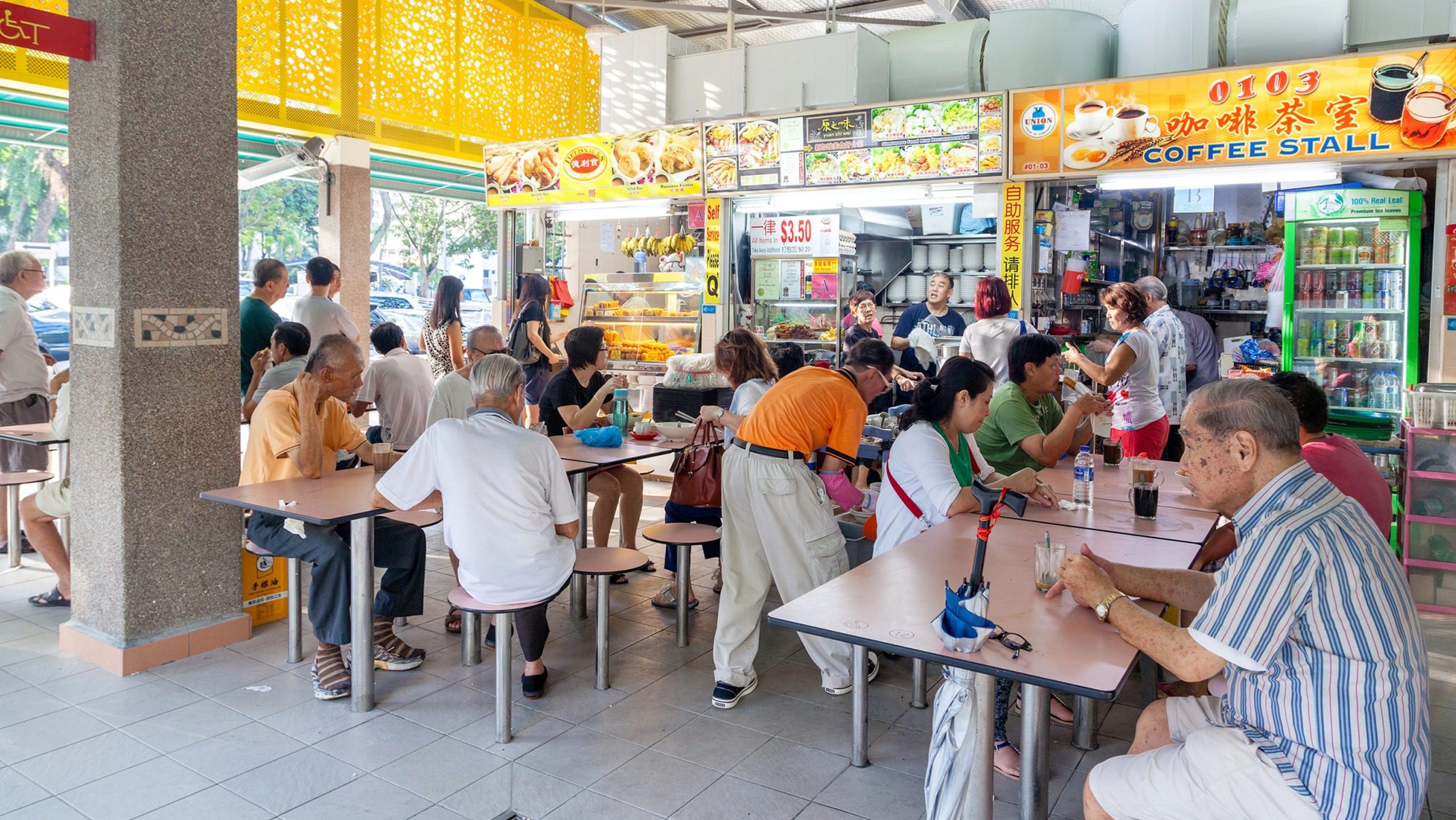SINGAPORE: In a rare show of bipartisan unity, Members of Parliament (MPs) on both sides of the political divide voted in favour of an amended motion on Wednesday (November 13) to continue government support for Singapore’s hawkers and to nurture the nation’s beloved hawker culture.
According to a Channel NewsAsia (CNA) report, the motion, originally proposed by the Progress Singapore Party (PSP), called for a review of hawker policies to ensure better support for hawkers and sustain and grow Singapore’s vibrant hawker scene. The aim was to ensure that Singaporeans could continue enjoying affordable and high-quality hawker food.
However, MP Edward Chia of the People’s Action Party (PAP-Holland-Bukit Timah) proposed amendments to the motion, which were subsequently accepted by the House. The revised motion emphasized the importance of regular policy reviews rather than a broad overhaul and shifted the language to focus on how these reviews would help hawkers earn a fair livelihood.
The final version of the motion reads: “This House calls on the government to continue its support for hawkers by regularly reviewing its policies relating to hawkers and the management of hawker centres, which will help sustain and grow Singapore’s hawker culture so that Singaporeans can continue to enjoy good and affordable hawker food while enabling hawkers to earn a fair livelihood.”
After a lengthy five-and-a-half-hour debate, all MPs present, including those from the Workers’ Party (WP) and PSP’s Non-Constituency MPs, voted in favour of the amended motion, underscoring broad a consensus on the importance of safeguarding Singapore’s hawker culture.
The debate saw contributions from 14 MPs, including two PSP NCMPs, a WP MP, and a Nominated MP. In his closing remarks, PSP NCMP Leong Mun Wai expressed the party’s willingness to support the amended motion, noting that it was largely in line with the original proposal. “This is to show that this House is united in our support for hawkers,” he said.
Proposals for addressing challenges facing hawkers
During the debate, several policy suggestions were put forward by MPs, particularly PSP’s Leong and Hazel Poa. One of Leong’s key proposals was to allow each cooked food hawker stall to employ a work permit holder as a stall assistant to help ease the manpower crunch. However, Senior Minister of State for Sustainability and the Environment Koh Poh Koon cautioned that fully liberalizing foreign manpower in hawker centres could significantly alter their character. He pointed out that the government’s decision to allow long-term visit pass holders to be hired as assistants starting January 1, 2024, was an attempt to balance these concerns.
Leong also proposed replacing the current tendering model for hawker stall rentals with a more flexible rent structure, aimed at reducing rent and curbing excessive speculation in coffee shops. In response, Dr Koh defended the existing bidding system, calling it transparent and market-driven, which helps to identify committed and serious hawkers.
Poa, on the other hand, suggested a centralized procurement system where a government agency could negotiate bulk purchasing deals with wholesalers to help hawkers lower their ingredient costs. While Dr Koh acknowledged that some hawker centres had attempted such systems, he noted that the take-up had been limited, as many hawkers preferred their established suppliers due to concerns over ingredient quality and provenance.
Concerns about rising costs and sustainability
Despite general support for the amendments, some MPs raised concerns about the sustainability of the hawker trade. MP Poh Li San (PAP-Sembawang) pointed out that schemes like the Hawkers’ Development Programme and the Hawkers Succession Scheme, designed to attract young hawkers and promote generational business transfers, had not seen widespread success. MP Louis Chua (WP-Sengkang) added that, out of the 566 people who signed up for the Hawkers’ Development Programme, only a small fraction had succeeded in establishing or sustaining their businesses.
“There is a need for more creative incentives to attract younger Singaporeans to take up the trade,” said Poh. Chua also highlighted the low uptake of the Hawkers Succession Scheme, calling for more effective measures to support this transition.
On the issue of hawker wages and affordability, MP Chia emphasized the need to address public attitudes towards the pricing of hawker food. “While customers are willing to pay S$15 for a bowl of ramen, they hesitate to pay S$5 for a handmade bowl of fishball noodles,” he said, urging Singaporeans to recognize the value of hawker food and ensure that hawkers can earn a sustainable livelihood.
Ensuring the future of Singapore’s hawker culture
As the debate concluded, Mr Leong stressed the urgency of addressing the financial pressures faced by hawkers, including high rents, staffing shortages, and competition from corporate players. “This situation is not sustainable,” he said. “At the rate we are going, our traditional hawker culture, which is built on the hard work and enterprise of individual hawkers, will slowly wither away.”
He called on the government to consider the proposals laid out by MPs to create a more level playing field for hawkers, ensuring that they can thrive in an increasingly competitive environment. “The current pride of our hawkers is at least partly due to the policies laid down by the government,” he said. “The onus is now on the government to provide better support for hawkers in the future.”
In his final remarks, Dr Koh reaffirmed the government’s commitment to supporting the hawker sector and emphasized the importance of feedback and collaboration with hawkers and their associations in shaping policies. He acknowledged that while the government’s efforts may not always be perfect, it would continue to review and refine its approach to support the future of Singapore’s hawker culture.
As MPs wrapped up their discussions, the debate underscored a shared recognition of the challenges facing hawkers and the broader need to preserve this iconic aspect of Singapore’s food heritage for generations to come.

